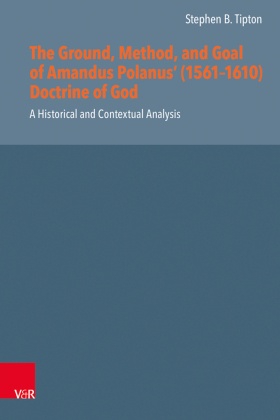
The Ground, Method, and Goal of Amandus Polanus' (1561-1610) Doctrine of God - A Historical and Contextual Analysis. Dissertationsschrift
| Verlag | Vandenhoeck & Ruprecht |
| Auflage | 2022 |
| Seiten | 351 |
| Format | 16,0 x 2,6 x 23,5 cm |
| Gewicht | 704 g |
| Artikeltyp | Englisches Buch |
| Reihe | Reformed Historical Theology Volume 073, Part |
| ISBN-10 | 3525501870 |
| EAN | 9783525501870 |
| Bestell-Nr | 52550187A |
This analysis of Amandus Polanus' (1561-1610) doctrine of God's essence and attributes provides insight into the broader contours of his theology, while also considering key criticisms of Polanus' work.
Amandus Polanus (1561-1610): a highly significant theologian but also a neglected one.
Amandus Polanus (1561-1610) has often been described as a highly significant theologian, but also a neglected one. Part of Polanus' significance comes from his inclusion of ethics and practical application in his discussion of theology and the way in which his theology mixes Ramist dichotomies and the scholastic distinctions common in Christian Aristotelianism. Stephen B. Tipton shows how Polanus' understanding of God's essence and attributes is built upon the ground of scripture, arranged with the aid of logical arguments and reasoning, and aimed at the worship and glory of the Triune God. Tipton defends this conclusion against previous research which suggests that Polanus' theology is grounded in rationalism and subordinates the Trinity beneath an Aristotelian notion of God's perfect unity. This research not only corrects these previous notions about Polanus, but it also provides greater insight into the early Reformed Orthodox period and the theology that arose from that time.
